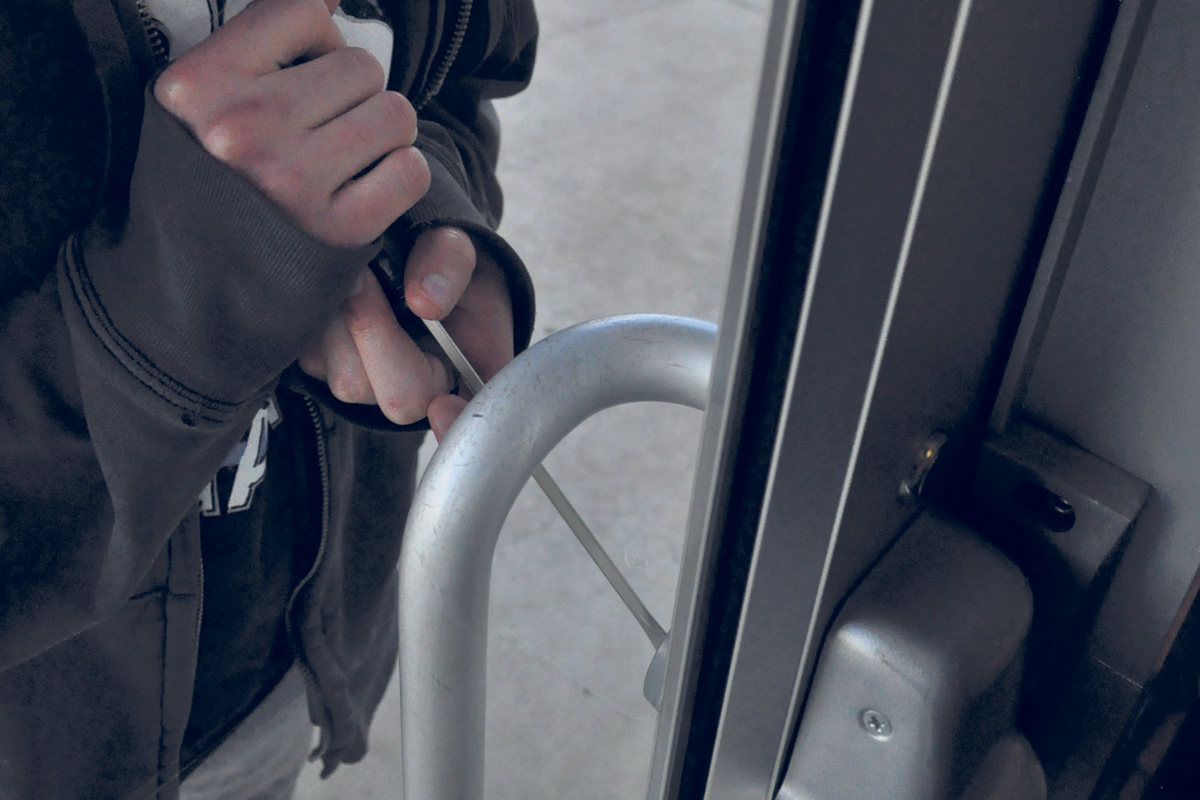Milne: Theft is number one problem on campus
Theft on campus, varying from items being taken off desks to breaking into buildings, is the number one problem Capt. Steve Milne, of Utah State Police Department, said is dealt with all year round at USU, in part because students aren’t aware of the danger and don’t take the necessary precautions to prevent it from happening.
“You don’t see serious crimes but theft is our number one problem, it always has been in the 29 years that I’ve been here,” Milne said. “A lot of it could be corrected from people taking better care of their property – keeping it locked up or out of sight.”
He said when he goes to eat at a campus eatery he notices students will place their backpacks at a table to save their place. Sometimes they leave their things unattended for more than 10 minutes.
Situations like this make it easy for people who are desperate for cash to steal the unguarded property, he said.
“They pick the stuff up and they walk off to a place that’s more secure and they start going through it and take what they want,” Milne said. “A lot of times we find the stuff discarded in the garbage cans, minus the expensive stuff.”
He said theft is not out of control at USU but it does occur on a weekly basis. Other times, potential thieves will look for weaknesses in building security to take advantage of the fact that nobody is around.
Staff assistant Amy Wilberg, who works in the dean’s office in the Emma Eccles Jones Education Building, recently reported random objects missing from a few different offices, including a water bottle, a mug and two bananas.
“It’s just really dumb things,” she said. “We’re cautious of what we leave out.”
She said there is usually always somebody there during the day and the office gets locked at 5 p.m., so she thinks the items could be disappearing at night.
Most of the time when security is compromised in a building, Milne said it is because people are not careful enough when they leave to make sure the door closes all of the way behind them.
“In 2009, we had an individual that was coming up out of Las Vegas, he would take a road trip and he would go knock off the vending machines,” Milne said. “This guy was a pro at this.”
Clarence Lancaster, 55, was arrested in Logan, January of 2009 and charged with 21 separate burglaries. Milne said he had his wife and infant in the car with him. Milne said Lancaster had a MapQuest printout with a route marked from Las Vegas to all of the colleges in Utah.
Lancaster admitted to the burglaries after he was caught on camera. When asked how he did it, Milne said Lancaster said he would look for doors and windows that were not closed properly.
“Particularly up here in Utah, kind of a safer community, people are a little more lax as far as leaving things open, unlocked,” Milne said. “We are a trusting area. The reason the police blotter was started was to make people aware there is still crime going on here.”
Sgt. Joe Huish of USUPD said each building on campus is handled a little differently when it comes to locking up. Some buildings, like the Taggart Student Center (TSC) and the Chase Fine Arts building have their own systems of keeping things safe that do not include campus security officers.
Huish supervises a team of five part-time, student security officers that work closely with the police to make sure campus is safe and secure.
“Our security guards go around and they lock all the buildings up,” Milne said, “but they’re on such a tight schedule, it’s not like they can check every door and window.”
Huish said due to budget cuts the amount of security officers currently employed has dropped slightly. He said administrators were considering further cuts but “ponied-up” since the result would have been possibly no security at all.
Each security officer has a list of buildings they are responsible for checking and locking, Huish said. Ninety percent of their job entails going from building to building and locking them up. Different buildings close at different times.
“We train our guys for close to a month before they are out on their own,” Huish said. “It’s quite extensive because each building is unique. Some are already locked when they get there but they check them and make sure the buildings are secure.”
Six-year security officer Evan Black, an English education major, said he likes the autonomy he has with the job. He said each officer works on his own and part of the job includes dispatching for the police department.
Black said he has dealt with squatters and vagrants taking up residence inside buildings that tend to be open later than others, especially in the winter.
“It’s cold outside so people will come inside for the warmth,” Black said. “They’ll take great pains to keep hidden from us, so we got to keep an extra eye out for them.”
He said there have been a couple of cases in the last few months of people hiding out in buildings and spending the night there.
Milne said the 132 intrusion alarms that officers have responded this year are slightly less than last year. The number of fire alarms has also gone down.
“The majority of the time it’s a curling iron versus an actual fire,” Milne said. “We do get a lot of people, when it comes to cooking, I don’t know if they’re just used to mom cooking for them, but now they’re on their own, they start heating up a pan of grease and aren’t aware they should keep an eye on that.”
Most fire alarms are tripped because of smoke from cooking accidents, Milne said.
– daniel.whitney.smith@aggiemail.usu.edu

